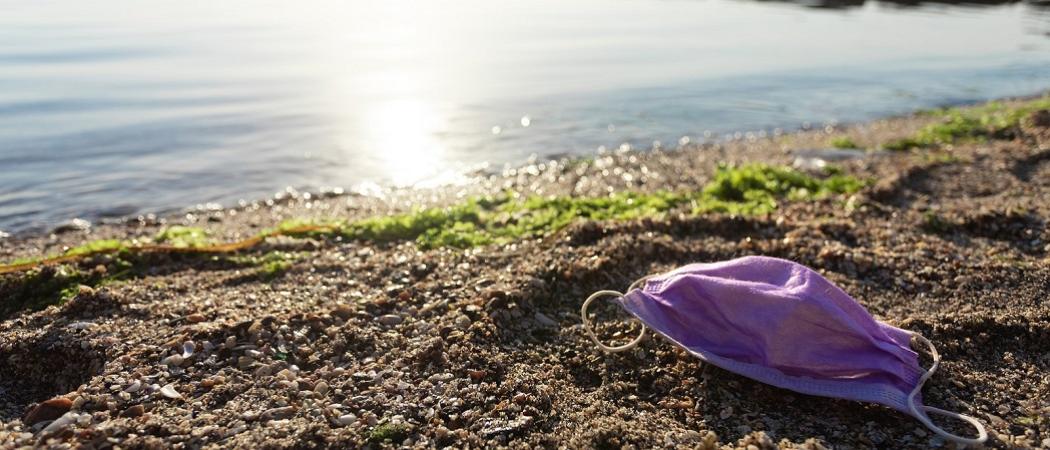Cleaning up Europe’s seas and inland waterways is a key part of securing the green transition, say EU commissioners, as they answer citizens’ questions about the upcoming Healthy Oceans research mission

Emerging from the pall of COVID-19, EU research commissioner Mariya Gabriel and Environment, Oceans and Fisheries commissioner Virginijus Sinkevičius held a virtual town hall meeting to open discussions on the European Commission’s upcoming mission to clean up seas and waterways, making for a healthier environment and underpinning a sustainable blue economy.
For Sinkevičius, setting, advancing and launching initiatives such as cleaning Europe’s beaches, raising awareness about ocean pollution and promoting sustainable tourism, is the key to engaging citizens with the challenges facing European waters.
Such initiatives will help create a blue economy, which in turn is a key part of the green transition. “Without a successful and sustainable blue economy, we hardly can achieve any of our [decarbonisation] goals for 2030 or 2050,” Sinkevičius said.
Planning for Healthy Oceans has been held back by the all-consuming pandemic and could be further undermined by the cuts to the research budget, agreed by European leaders this week.
Sinkevičius admitted the COVID-19 crisis derailed plans and the commission has made less progress in driving EU efforts to restore and safeguard European waters than expected. “2020 had to be the year for our oceans,” said Sinkevičius. ”But don’t make any prejudgments. It’s been postponed due to COVID-19, and we’ll definitely return to all those visions.”
Citizen education, entrepreneurship fostered by the European Innovation Council (EIC) and research into harvesting wind, wave and tidal energy will play a key role in the framework that will be bought to bear in the healthy waters mission, the two commissioners said.
The exact details of how the components come together are yet to be defined, but the question and answer session was the first time the possible tools and programmes that will be harnessed to achieve the mission’s goals were discussed.
Healthy Oceans is one of the EU’s five big research missions, a new approach which involves setting goals around which to focus different strands of research, increasing momentum and promoting translation. The missions are to be launched in 2021, at the start of the EU’s next seven-year budget cycle.
As things stand, the Healthy Oceans mission is the least defined of the five. The commission’s preliminary proposal from June sets lofty targets, such as making all European oceans plastic-free by 2030, but includes few pointers on how that could be achieved.
Nothing is set in stone, Gabriel said. Currently, the commission is gathering recommendations from stakeholders, to be considered and included in the commission’s formal proposal due this autumn.
Entrepreneurship, education and research
The Healthy Oceans mission lists five goals of tackling pollution, regenerating marine habitats, generating renewable ocean energy, educating people about oceans, and improving governance.
The goals are multifaceted and cannot be achieved with one programme, the approach needs to be holistic, commissioners said. “There are no miracle solutions with one unique instrument, with one funding programme,” said Gabriel. ”We have to work together with member states, with stakeholders, with the private sector, in order to build synergies and see how we can achieve bigger impact.”
Whatever the final shape of the mission, it is primarily a research programme and Horizon Europe will play a key role.
In addition to having no concrete plan, Healthy Oceans and the other missions as yet have no defined budget. Earlier estimates suggested between €5 and €10 billion is needed to finance all five missions. However, budgets and research plans may need to be recalibrated after EU leaders slashed funding for Horizon Europe.
Gabriel said the real question is not the budget, but how to ensure that funding is well targeted, rapidly delivered and that findings are shared in real-time.
To facilitate data sharing, the commissioners hope to create a digital replica of the oceans. “Here, the goal is to pull all available observation data into an open source, real-time, easily accessible and understandable interface and matching application. That will allow us to develop a trusted and fit for purpose observation modelling and prediction of our ocean system,” said Gabriel. The system would be open to different interest groups, including researchers and policymakers, to track what is happening in the oceans.
European entrepreneurs with the help of EIC will play a key role in reaching the mission’s goals. As an illustration of how EIC can contribute, Gabriel pointed to two start-ups that have had funding from the agency. One produces microalgae-based ingredients for food supplements, the second optical sensors that can be used to manage and control waters.
The two commissioners also emphasised education and citizen engagement as priority areas. If people care about the oceans, there will be a head of steam to press on with cleaning and regenerating European waters.
Citizens should be engaged with the mission from the very beginning. “If you [want] to have real citizen engagement, we have to engage citizens at the beginning of the process,” Gabriel said. To make this happen, the commission published its draft mission recommendations early, and is now waiting to receive feedback from people and organisations around Europe.





 A unique international forum for public research organisations and companies to connect their external engagement with strategic interests around their R&D system.
A unique international forum for public research organisations and companies to connect their external engagement with strategic interests around their R&D system.